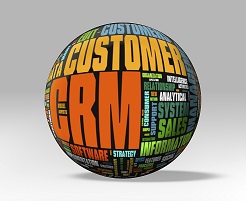Increasing Customer Value with CRM Analytics
 Today, the availability of econometric, demographic, lifestyle and psychographic data, business intelligence systems, the internet, and other customer access techniques are helping marketing and senior management make customer care a reality rather than just a vision. Companies no longer want to treat their customer base as a homogeneous collection of revenue-generating units; they want to – or rather, must – get up close and personal with each of them individually.
Today, the availability of econometric, demographic, lifestyle and psychographic data, business intelligence systems, the internet, and other customer access techniques are helping marketing and senior management make customer care a reality rather than just a vision. Companies no longer want to treat their customer base as a homogeneous collection of revenue-generating units; they want to – or rather, must – get up close and personal with each of them individually.
CRM takes a holistic view of the customer by trying to understand the total value of each customer over their entire life rather than on a transaction-by-transaction basis. This allows businesses to serve the customer better and maximize profitability through increased loyalty.
The Value of Customer Loyalty
One cross-industry study showed that while most businesses treat all customers the same, one-third of those customers are highly profitable, one-third are marginally profitable, and one-third are not profitable. This same study showed that many businesses are focused on acquiring new customers rather than keeping their existing ones. This trend led to a 10% customer turnover per year, but it costs 5 to 7 times more money to attract a new customer than it does to keep an existing one. One of the main problems with keeping existing customers is understanding their needs and maximizing their satisfaction. This is underscored by the fact that most customers choose to switch service or product providers based on two universal characteristics: quality and timeliness or responsiveness.
Many companies measure satisfaction based on customer spending but this is a poor indication of satisfaction and typically evaluates each transaction on an individual basis rather than a customer’s “whole life” value. That absolute measure never signals a customer’s desire to switch vendors until it is too late. CRM is the application that allows a company to organize its information around a customer’s behavior rather than product sales in order to maximize the value.
CRM begins with in-depth analysis of customer behavior and attributes to achieve complete knowledge of customer habits, desires and needs. It then applies this knowledge to the formulation of marketing campaigns, strategies and treatment plans. CRM systems help manage the relationship through customer interaction, which allows the business to establish, cultivate and maintain long-lasting and mutually beneficial relationships.
CRM Analytics Provides True Customer Intelligence to Enterprises
There are several unique application areas within CRM, and CRM analytics is one of the hottest and fastest growing. This application deals with aggregating all of the relevant information about customers, determining which group of customers has similar patterns and helping to determine things like:
- Who are the best candidates for new products and services
- When are these customers most likely to buy
- What are the preferred buying patterns and influences of customers
CRM analytics allow businesses to move away from mass marketing to mass customization. The equation that yields trust and loyalty from a customer has two elements. The first is information and analysis (knowledge): one has to know that the customer wants, needs and values. The second is the need for interaction and personal contact in a way the customer prefers. The success of a customer-centric business strategy is measured not only by “share-of-market,” but by “share-of-customer.”
CRM? Why Now?
There are three primary reasons why CRM has taken hold as rapidly as it has: competition is fierce, the economics of customer retention are unequivocal, and the technology is available to allow organizations to manage customer relationships more effectively and profitably today.
The key ingredient is the information integration and feedback systems which are continually updated to maximize business opportunities. As the technology for identifying target customers becomes affordable and available, individual companies are finding that they want to gain control of the process of analyzing and connecting with their customers. The analytical infrastructure for CRM needs to be a comprehensive customer information platform that supports this process.